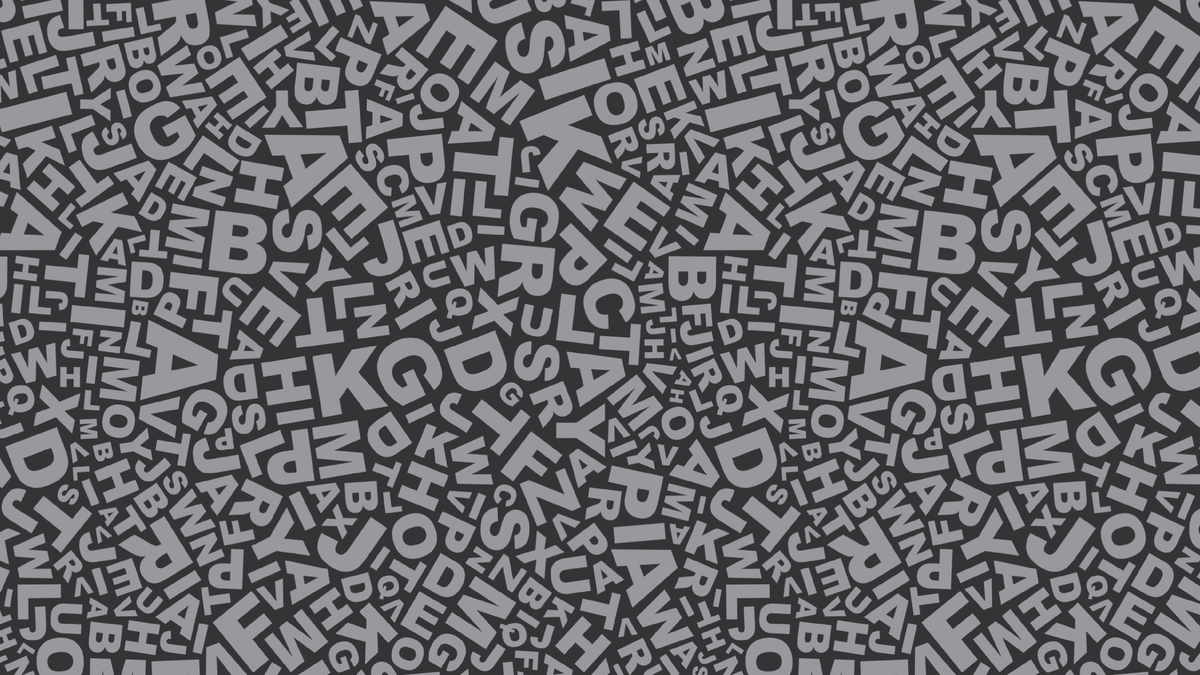
Language evolves constantly, with words shifting meanings as society, technology, and culture progress. Some words now mean nearly the opposite of what they did a century ago, while others have taken on entirely new connotations. Here’s a deep dive into 30 words that have transformed their meanings over the past 100 years:
1. Awful
- Then: In earlier centuries, "awful" meant something that inspired awe or wonder, often with a sense of reverence or fear. It could be used to describe grand or majestic things like cathedrals or thunderstorms.
- Now: Today, "awful" has a purely negative meaning. It describes something very bad or unpleasant, like an awful smell or awful weather. The word lost its association with grandeur and has taken on a more negative tone.
2. Nice
- Then: "Nice" was a term used to describe someone who was ignorant or foolish in the Middle Ages. Over time, it also came to mean precise or meticulous, indicating that a person was overly concerned with small details.
- Now: Today, "nice" means kind, pleasant, or agreeable. It’s a common compliment for someone's personality or behavior, far from its historical association with foolishness.
3. Literally
- Then: Historically, "literally" was used to indicate that something happened exactly as described, with no exaggeration. If someone said, "I literally ran five miles," they meant they had run exactly that distance.
- Now: In modern usage, "literally" is often employed for emphasis, even when the statement is exaggerated or figurative. For example, "I was literally dying of laughter" doesn't mean that the person was actually at risk of death, but is instead an exaggerated expression of amusement.
4. Gay
- Then: "Gay" was commonly used to describe someone or something that was happy, carefree, or bright in the early 20th century. It could refer to a joyful person or even a lively party atmosphere.
- Now: Today, "gay" is primarily used to describe someone who is attracted to members of the same sex. The word’s association with happiness has become secondary to its modern meaning related to sexual orientation.
5. Decimate
- Then: Coming from the Latin word decimare, which means "to take a tenth," "decimate" originally referred to a practice in the Roman military where one out of every ten soldiers would be killed as punishment.
- Now: Today, "decimate" means to destroy a large proportion of something, often with no specific numerical association. For example, a natural disaster might decimate a town, meaning a significant part of it is destroyed, rather than exactly one-tenth.
6. Clue
- Then: Derived from the word "clew," meaning a ball of yarn or thread, "clue" was used metaphorically in literature, like the story of Theseus using a clew to find his way out of the labyrinth.
- Now: The modern sense of the word "clue" refers to a piece of evidence or information that helps solve a mystery or puzzle. It’s a key part of detective stories and problem-solving.
7. Tablet
- Then: A "tablet" originally referred to a flat slab of stone or clay that was used for writing, dating back to ancient times. These physical objects were durable and permanent.
- Now: Today, a "tablet" is a lightweight, portable electronic device used for communication, entertainment, and work. The word now refers to something highly modern, yet it still has connections to writing and information storage.
8. Artificial
- Then: The word "artificial" once had a neutral or even positive meaning, referring to something skillfully crafted or made by human hands, as opposed to occurring naturally. It was associated with craftsmanship.
- Now: "Artificial" now often has negative connotations, implying that something is fake, inferior, or less valuable than its natural counterpart. Whether it's food ingredients or intelligence, the word suggests a lack of authenticity.
9. Spam
- Then: "Spam" originally referred to a type of canned meat product that became popular during and after World War II. Known for its long shelf life, it was an economical choice for many households.
- Now: In the digital age, "spam" refers to unsolicited or unwanted emails and messages, often in large volumes. The word has nothing to do with food anymore, and it’s a nuisance in the realm of communication.
10. Pandemic
- Then: "Pandemic" was a term in epidemiology describing a disease that spread across multiple countries or continents. While it existed in medical texts, it wasn’t a term that the general public commonly used.
- Now: With global health crises like COVID-19, "pandemic" has become a household term. It now carries associations with widespread disruption, fear, and precautionary measures, beyond just its technical medical definition.
11. Broadcast
- Then: "Broadcast" originally referred to the act of scattering seeds widely across a field, which is where the term originated in agriculture.
- Now: The term has taken on a technological meaning, referring to the transmission of radio, television, or digital signals to a wide audience. It’s no longer about farming, but about information dissemination.
12. Terrific
- Then: "Terrific" once meant causing terror or fear, something that was terrifying. It had a strong negative association.
- Now: Today, "terrific" has flipped to have a completely positive meaning. It is used to describe something that is fantastic, wonderful, or very good.
13. Computer
- Then: In the early 20th century, a "computer" was a person who performed mathematical calculations, often working in scientific or academic settings.
- Now: Today, a "computer" is a machine capable of performing complex computations and tasks, essential to modern life. It bears no relation to its human counterpart.
14. Bad
- Then: "Bad" has always had a negative connotation, describing something harmful or undesirable.
- Now: In modern slang, "bad" can also mean something impressive or cool, especially in phrases like "badass." It has taken on a rebellious or positive tone in certain contexts.
15. Cool
- Then: "Cool" was primarily used to describe a temperature that was moderately cold, as in cool weather or a cool breeze.
- Now: "Cool" is now a term used to describe something fashionable, calm, or impressive. The term has become one of the most versatile slang words in modern English.
16. Meat
- Then: Historically, "meat" referred to any type of food in general, not just the flesh of animals.
- Now: The term "meat" refers specifically to the edible flesh of animals, particularly mammals and birds, and no longer applies to food in general.
17. Girl
- Then: In medieval times, "girl" was a word that could refer to a young person of either gender, not just females.
- Now: Today, "girl" is used exclusively to describe a female child or young woman, with no connotation of boys or males.
18. Journey
- Then: The word "journey" originally referred to the distance one could travel in a single day. It comes from the French word "jour," meaning "day."
- Now: Now, "journey" refers to any significant trip, whether short or long, and often metaphorically to describe a personal or emotional experience over time.
19. Ego
- Then: In psychology, "ego" originally referred to the self or one's sense of identity. It was a neutral term used to describe the conscious mind.
- Now: In common usage, "ego" has taken on a more negative connotation, often used to describe an inflated sense of self-importance or arrogance.
20. Naughty
- Then: In the past, "naughty" referred to someone who was poor or needy, not necessarily someone who misbehaved.
- Now: Today, "naughty" describes someone, often a child, who misbehaves or acts improperly. It can also have a playful or suggestive meaning when referring to adults.
21. Myriad
- Then: "Myriad" originally meant exactly 10,000, coming from the Greek word for that specific number.
- Now: In modern English, "myriad" means an indefinitely large number, without any specific reference to 10,000. For example, one might say, "There are myriad reasons to be optimistic."
22. Dapper
- Then: "Dapper" once referred to someone who was quick or nimble in movement, describing agility rather than appearance.
- Now: Today, "dapper" describes someone, typically a man, who is stylishly dressed and has a neat and sophisticated appearance.
At Impresa Brand360, we help clients stand out from their competitors and connect with their audience. get in touch to see how we can be of service for your brand and business: www.impresabrand360.com Follow us on LinkedIn: https://www.linkedin.com/company/impresa-brand360 and Instagram: https://www.instagram.com/impresabrand360/

